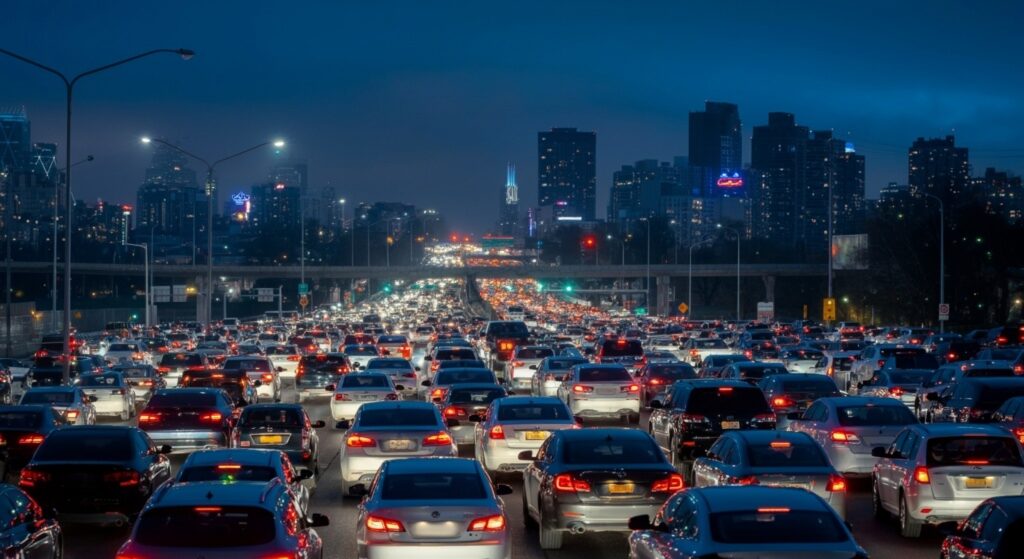Dubai motorists experienced 35 hours lost to traffic congestion in 2024, a 2-hour increase from 2023. The Inrix 2024 Global Traffic Scorecard highlighted a 45% surge in lost hours compared to 2022. Dubai’s population grew by over 134,000 in 2024, reaching 3.8 million.
35 Hours Lost to Traffic
Since January 2021, the city has gained 378,000 residents due to an influx of foreign workers, investors, and professionals. According to Salik’s data, the number of registered vehicles in Dubai increased by 8.7% year over year to 4.3 million.
During daytime hours, the city now has 3.5 million cars on its roads. Over the last two years, vehicle registration grew by 10%, significantly higher than the global average of 2-4%.
Tackling Traffic
The UAE government continues investing heavily in infrastructure to ease congestion. In 2024, it approved a five-year internal roads plan. This project involves 21 developments across 12 areas and will add 634 kilometers of roads at a cost of AED 3.7 billion.
Infrastructure development has remained a key focus, even during challenging times like the 2008-09 financial crisis and the pandemic. Fawaz Sous, CEO of Octa Properties, said, “Dubai’s infrastructure drives growth, blending road networks with transparent legal systems,”
Authorities are also addressing congestion by introducing flexible work hours and remote work policies. Based on studies conducted by Dubai officials, these measures aim to reduce peak-hour traffic by 30%.
Traffic Speeds and Global Comparisons
Despite rising traffic, Dubai ranks 154th globally for congestion, performing better than many large cities. In 2024, peak speeds during rush hours dropped to 50 km/h, compared to 56 km/h in 2019. However, off-peak speeds rose to 70 km/h.
UAE Experienced Lighter Traffic?
Globally, cities like Istanbul, New York, and London faced far worse congestion. Istanbul motorists lost 105 hours to traffic, while drivers in New York and London lost over 100 hours each. In contrast, UAE motorists experienced lighter traffic.
In Abu Dhabi, drivers spent 19 hours in traffic, 5% less than in 2023. Umm Al Quwain motorists lost 14 hours, 7% less than the previous year. Fujairah and Al Ain saw lighter congestion, with drivers losing 8 and 9 hours, respectively.
Cost of Global Traffic Congestion
Traffic congestion cost drivers worldwide billions of dollars in lost time. In the US, motorists lost 43 hours in traffic, worth $771 per driver, and costing the economy $74 billion in 2024. UK drivers faced similar losses, with an average of 61 hours stuck in traffic, equivalent to £7.8 billion.
Dubai’s efforts to expand its infrastructure ensure that it remains ahead of its global counterparts in managing urban congestion.
Conclusion
The 35 hours lost to traffic in Dubai during 2024 highlights the challenges of urban congestion as the city’s population surges. With a 45% increase compared to 2022, these delays underscore the impact of rapid urbanization and economic growth.
However, Dubai’s proactive approach, including investing billions in infrastructure and implementing flexible work policies, aims to address these issues. While 35 hours lost to traffic may seem significant, the emirate’s global ranking of 154th in congestion shows its comparative efficiency. Dubai’s continued focus on thoughtful planning ensures a balanced response to the challenges of growing urban demands.
If you like such content, keep following the Arabwheels blog.
